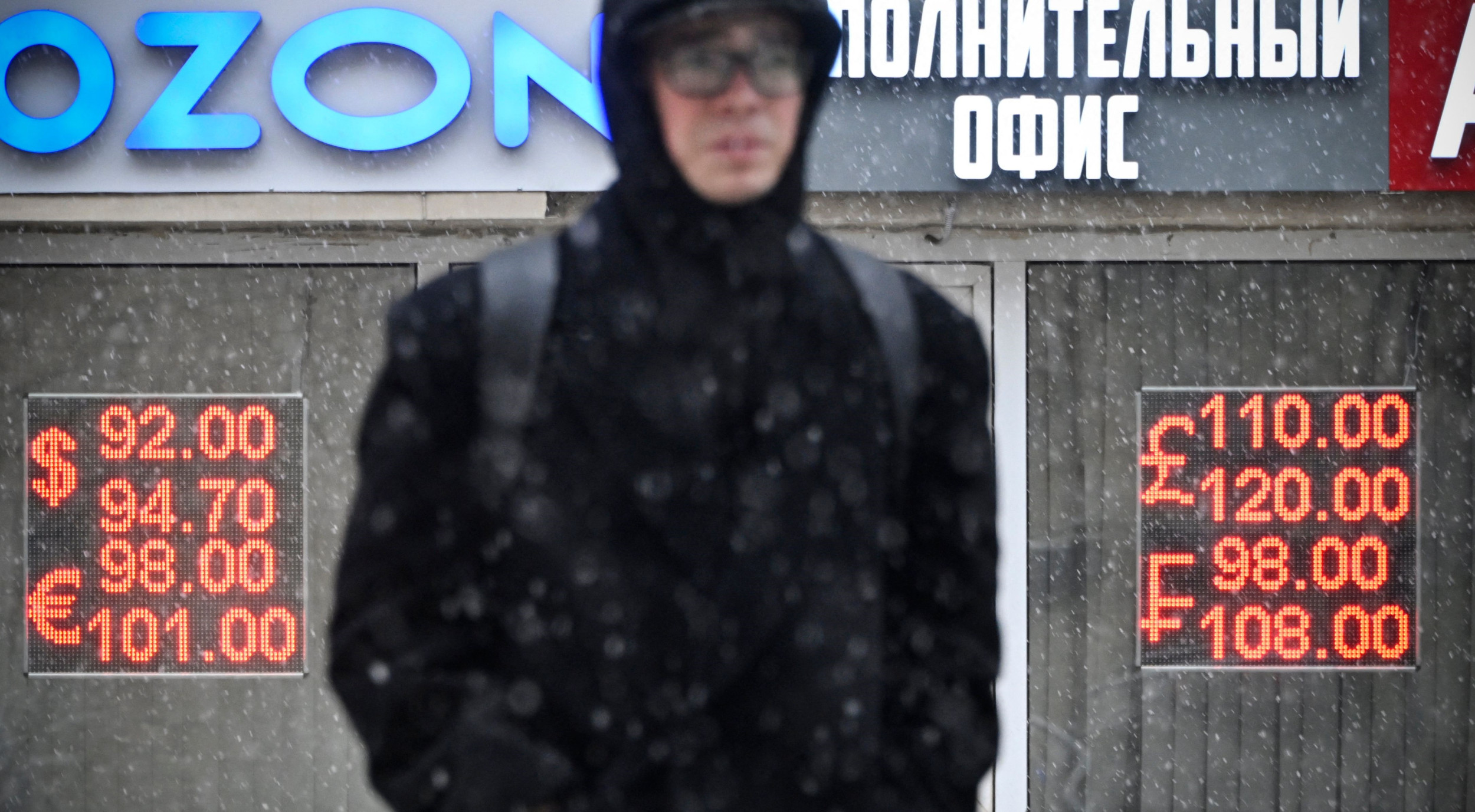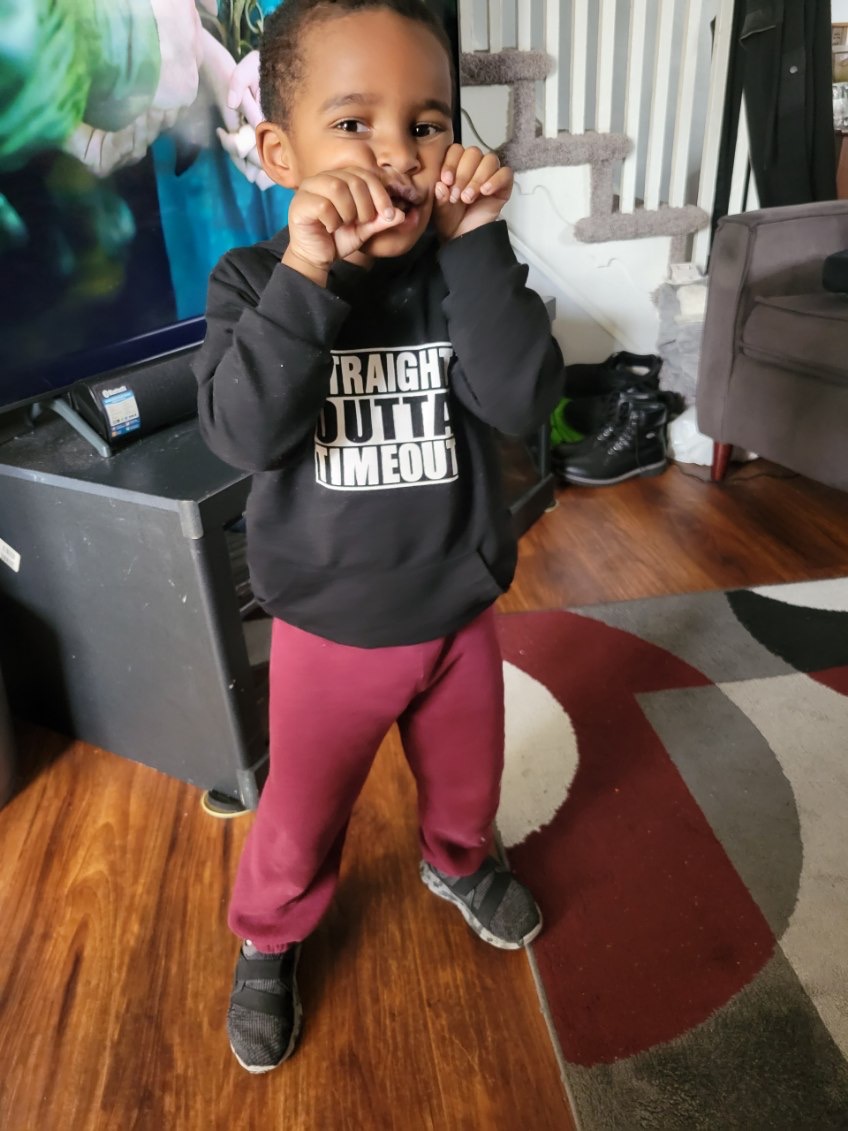Everyone has that one cultural or sporting event they simply cannot miss. For some, it's the excitement of the Super Bowl. For others, it's the glamor of the Oscars.
For millions of Europeans and others nationalities around the world, that event is the Eurovision Song Contest. Eurovision, as it's commonly known, sees nations battle it out for the glory of having the best song on the continent, and is famous for its outrageous pageantry and putting ABBA on the map.
Tens of millions of dollars are at stake, and despite its name, the contest is not restricted only to European countries. Australia has previously taken part, despite being thousands of miles away, and Israel has competed dozens of times since its debut in 1973. To take part, a country needs to be a member of the European Broadcasting Union (EBU) and have a state broadcaster to run the competition.
This year, however, Israel's participation has unleashed a tidal wave of controversy—a difficult moment for a competition that prides itself on cheerful inclusivity.
There are increasing calls from artists, competing countries, politicians and the public for Israel to be disallowed from May's contest, which is being held in Malmö, Sweden, and marks 50 years since ABBA won with "Waterloo." The prolific pro-Palestinian Boycott, Divest, Sanction (BDS) movement has also called for Israel to be banned.
They argue that Israel's military assault in the Gaza Strip, which has killed close to 30,000 people in the Palestinian territory, according to The Associated Press, should disqualify it from participating. Israel's campaign came after an unprecedented surprise attack by the military arm of Palestinian group Hamas on Israel in October which killed around 1,200 people, in addition to the kidnapping of more than 200, the AP reported. Around 136 hostages remain with Hamas.
Israeli Prime Minister Benjamin Netanyahu has vowed not to stop the assault until Hamas is destroyed and the Israeli hostages are freed. But critics have called for a ceasefire to allow humanitarian aid to get to millions of displaced Palestinians who are facing starvation and fast-spreading diseases.
Eurovision is supposed to be "non-political," according to official rules of the EBU, which governs the competition. In fact, they stipulate that host broadcasters and national delegations must ensure it "shall in no case be politicized and/or instrumentalized and/or otherwise brought into disrepute in any way."
However, Russia was banned from the competition following its invasion of Ukraine in 2022, and it is looking increasingly unlikely the contest will avoid being politicized this year.
"If Israel is allowed to participate, it will send a message to the world that anything goes. If Israel's representative appears on screens across the world, it would be a normalization of genocidal behaviour," a spokesperson for Artists for Palestine UK, which describes itself as a "network of artists and cultural workers standing together in support of Palestinian liberation and for a just resolution for all in Israel/Palestine," tells Newsweek.
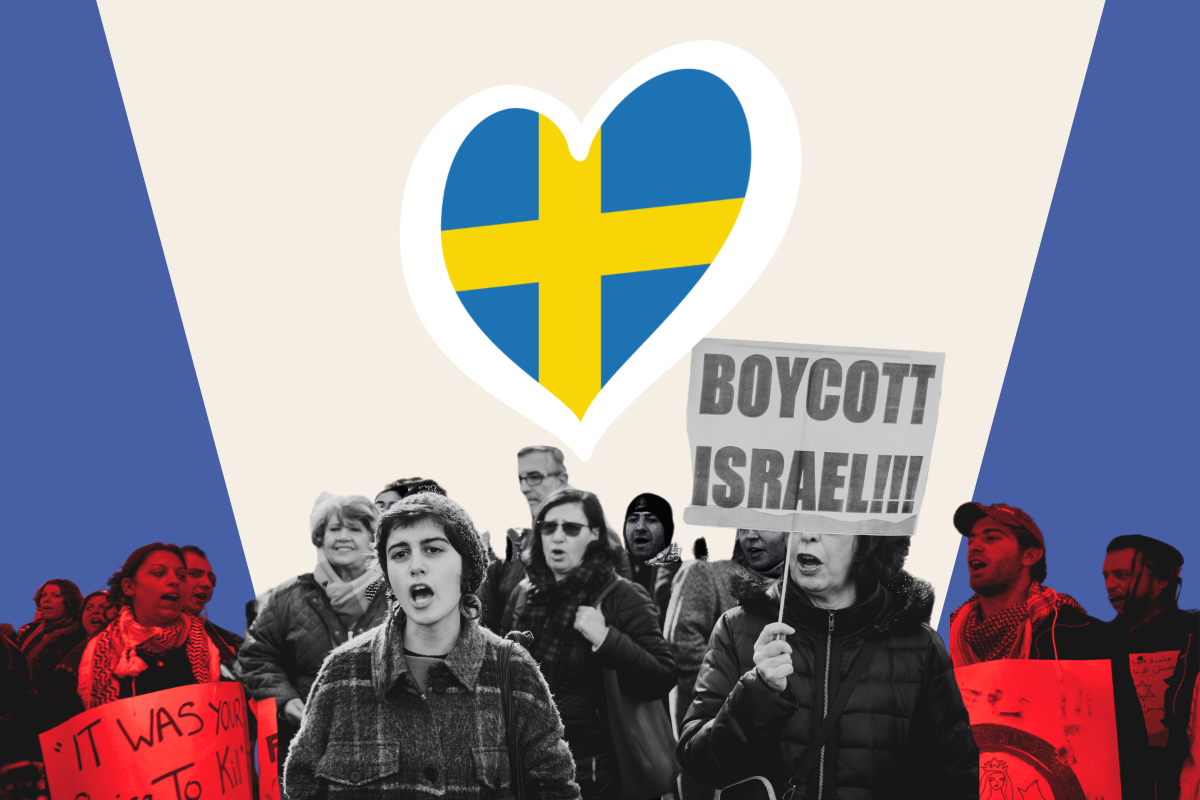
Some of Europe's biggest names are calling for their national broadcasters to pull out of this year's contest or at least put the pressure on to ban Israel, including Sweden's Robyn, best known for her hits "Dancing on my Own" and "Show Me Love."
She and more than 1,000 other Swedes signed an open letter to the EBU saying that "the fact that countries that place themselves above humanitarian law are welcomed to participate in international cultural events trivializes violations of international law and makes the suffering of the victims invisible."
Of course, not everyone agrees.
"All of the above is detached from reality," says Asaf Romirowsky, executive director of the pro-Israeli lobby group Scholars for Peace in the Middle East, who argues that calls to ban Israel are antisemitic.
"Eurovision is yet another example of showcasing Israeli talent and art in the international arena...Israel should make a point of participating and showing the world the many faces of Israeli society."
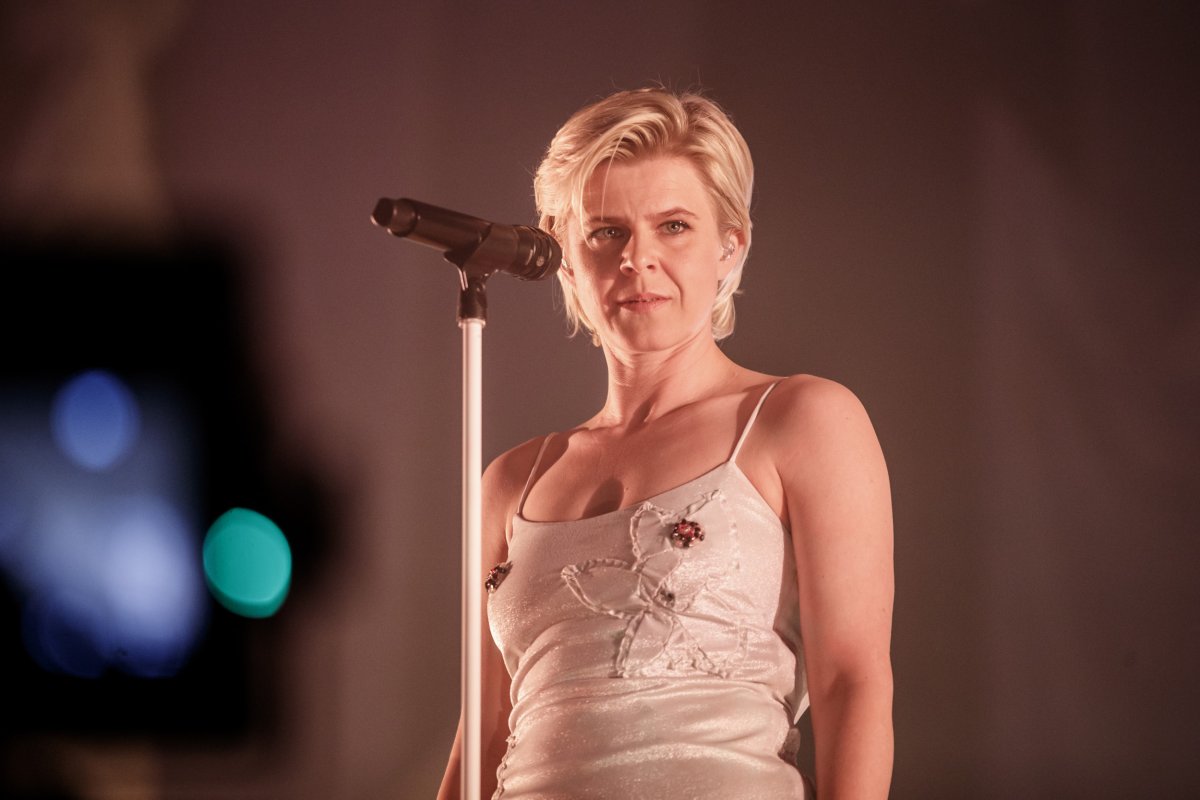
While there are some big names calling for an Israeli ban or boycott, there are some even bigger names saying that it should be allowed to compete.
More than 400 stars, from Oscar-winner Helen Mirren to Kiss rocker Gene Simmons, signed an open letter from the nonprofit Creative Community For Peace saying it would be wrong to ban Israel from Eurovision.
"Music unites people from all backgrounds. It's the one language that everyone can understand. It's a beautiful thing and a great way to bring people together. Those advocating to exclude an Israeli singer from Eurovision don't move the needle towards peace, but only further divide the world," Simmons said in a statement.
Israel's public broadcaster, Kan, declared that 20-year-old Eden Golan would represent it at the 2024 competition after she won the local competition and dedicated her win to the remaining hostages in Gaza.
"We won't truly be OK until everyone returns home," she said.
Newsweek contacted Kan by email for comment but it declined to comment.

Eurovision: How Does It Work?
Based on the Italian San Remo Music Festival, Eurovision kicked off in 1956 and sees EBU members submit a song from their respective countries to compete. Other than the returning winner, which hosts Eurovision the year after its victory, each song competes in one of two semi-finals, with the top 10 in each semi going through to the grand final.
The "Big Five" countries—Spain, U.K. France, Italy and Germany—also automatically qualify for the final because they are the biggest financial contributors to the EBU.
Even though Eurovision is a non-profit event, it's paid for through a fee from the participating broadcasters, which was around $6.5 million in 2019 (€6.2 million) and between $10.7 million and $21.4 million (€10-20 million) in contributions from the host broadcaster and respective host city, per Eurovision. There's also plenty of money to be made from advertising, sponsorship, televoting, ticket sales to the live shows and merchandise.
It costs big money to put on the show so even if one broadcaster, advertiser or group of fans chooses to boycott it, it could cost the EBU big and 2024's show could struggle.
Iceland is already threatening to withdraw if Israel is allowed to participate, while other countries such as host Sweden are under big pressure to speak out in favor of banning Israel.
Newsweek contacted Iceland's public broadcaster, RUV, by email for comment. Sweden's public broadcaster, SVT, tells Newsweek as host broadcaster this year it "follows the EBU's decisions."
EBU Director General Noel Curran stands by the decision to allow Israel to compete, as it has not violated "competition rules for this year and can participate as it has for the past 50 years."
"We understand the concerns and deeply held views around the current conflict in the Middle East. We can't fail to be moved by the profound suffering of all those caught up in this terrible war," he says in a statement to Newsweek.
Eurovision is a Big Deal. Here's Why
The show is popular—really popular. The 2023 contest had 162 million TV viewers in 39 markets and a further 75 million on YouTube alone. The 37 songs of the 2023 competition had a combined total of 808 million streams and it generated $853 million (€795 million) in ad-value, according to the EBU's audience report.
Eurovision's impact goes beyond economics. It is also a form of "soft power," a term coined in 1990 to define "the ability to obtain preferred outcomes by attraction rather than coercion or payment." Eurovision's cultural impact brings us to the concept of "pinkwashing"—and it's another area in which Israel's participation is proving controversial.
Eurovision, the 'Gay Olympics'
People all over the world love Eurovision, but no more than the "gays, the shes and the theys," aka LGBTQ+ communities and their allies, leading many to label the contest the "Gay Olympics."
Eurovision is a mainstay of queer culture not only because of its quintessential campness, but also because it offers representation for LGBTQ+ people in a continent whose attitudes and national laws towards the community vary greatly. LGBTQ+ people enjoy wide-ranging rights in some parts of Europe, but in others they face discrimination, increasing prejudice and violence, according to Equaldex, a global measurement of LGBTQ+ rights, laws, and freedoms as well as public attitudes towards those communities.
"Eurovision is distinct amongst mega-events as a stage for LGBTQIA+ visibility and inclusion, with a large LGBTQIA+ fan base and where openly out artists have been competing in the competition itself since 1997. Some momentous and widely popular acts have contributed to a boost in LGBTQIA+ acceptance across Europe," wrote the British Council, an international cultural organization, in 2023.
In 1998, Israel's own Dana International became the first transgender person to win, paving the way for Austrian drag star Conchita Wurst to win in 2014. They represent just two of Eurovision's many LGBTQ+ milestones.
But the LGBTQ+ association with Eurovision has only further angered Israel's critics.
Israel often touts itself as the only safe place for LGBTQ+ people in the Middle East and points to the Pride parade in Tel Aviv, one of the biggest in the world, as proof.
Elsewhere, however, the situation can be very different. Shira Banki, a 16-year-old girl, died after being stabbed to death in 2015 while participating in Jerusalem's Pride parade, and a further five people were stabbed. Yishai Schlissel, the perpetrator, carried out the attack just three weeks after he was released from jail for a similar crime in 2005.
Israel denied same-sex couples the right to adopt children early in 2023, though it allows them to have children via surrogacy, and it does not allow same-sex marriage, nor recognize non-binary gender identities.
Israel vs. Pinkwashing
As a result, Israel's critics of accuse the country of "pinkwashing," which is when a country, person or business plays up LGBTQ+ inclusiveness to distract from negative aspects of itself.
Or as the gay Palestinian writer Elias Jahshan describes it, "a propaganda tool or public relations strategy for Israel... to absolve itself of all criticism and accountability."
"We've also seen clear examples of this during Israel's genocidal war on Gaza—such as the viral image in November of the soldier posing with a rainbow flag after invading Gaza," Jahshan, who edited the anthology This Arab Is Queer, adds.
The Israeli soldier in question posed with the Pride flag and posted to social media with the caption, "despite the pain of war—the IDF is the only army in the Middle East that defends democratic values. It is the only army that allows gay people the freedom to be who we are. And so I fully believe in the righteousness of our cause."
The idea that Israel is liberating queer communities serves as one of the pretexts for legitimizing its actions in Gaza, according to Jahshan. "It is a blatant pinkwashing tactic that obfuscates the full story and removes context and history," he tells Newsweek.
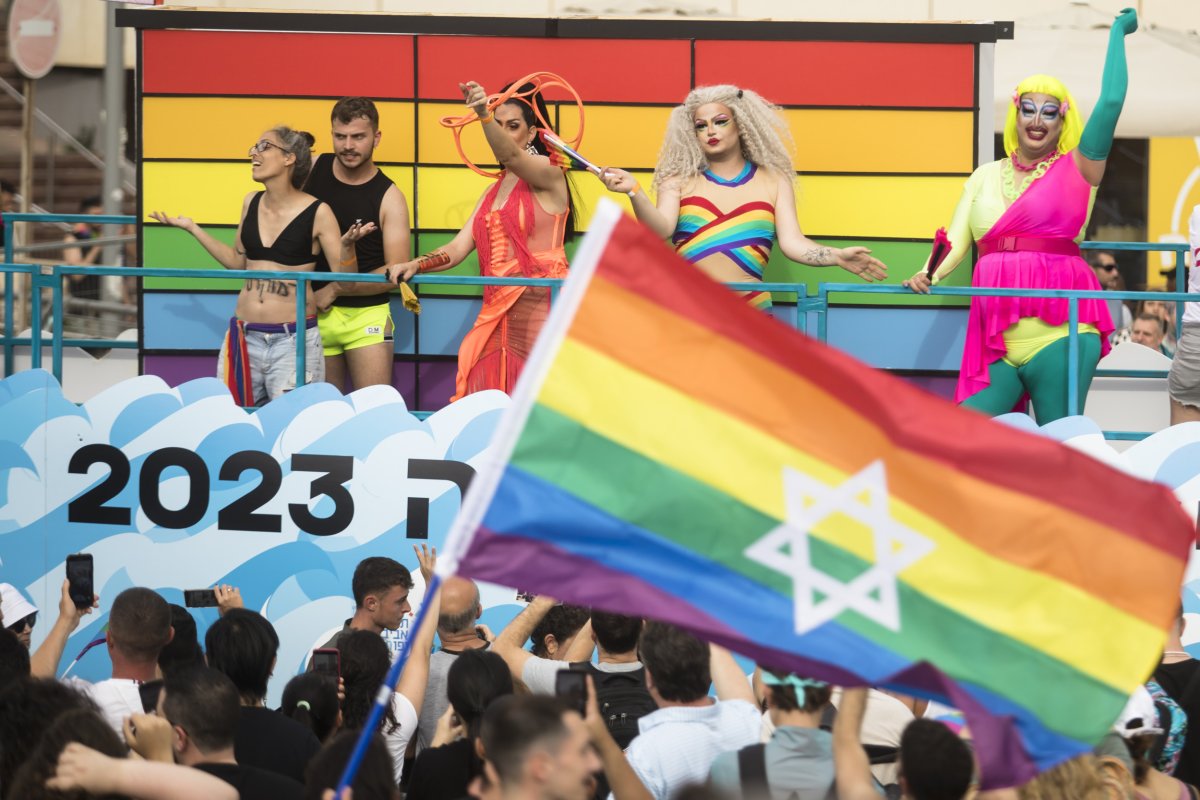
"The idea that these bastions of queer culture, such as Eurovision, are being used to ameliorate Israel is something that a lot of LGBT organisations worldwide and a lot of LGBT individuals like myself, are really concerned about," says Stella Swain, the youth and student campaigns officer at the Palestine Solidarity Campaign, a U.K. organization.
She adds that "Israel is cynically appealing to particular groups in society," such as LGBTQ+ people, and, as a queer person herself, Swain says "we don't want Israel to use us as a cloak for these genocidal acts."
Jahshan also argues that Israel's "pinkwashing" is upheld by a "racist view that Palestinians remain 'backwards' in their stance on homosexuality," and Israel's so-called progressiveness does not spare LGBTQ+ Palestinians because, "Israeli authorities will discriminate against queer Palestinians simply because they are Palestinian."
"There have also been instances of Israeli forces blackmailing queer Palestinians – getting them to provide intel on their community or be outed against their will. It's monstrous for a state to weaponise the homophobia in Palestinian society in such a way," he says.
Writer Adam Zivo dismisses accusations of pinkwashing as "reductive and offensive" given that Israel is "a bastion of LGBTQ acceptance in a region that otherwise beats, executes and imprisons queer people."
"[It] is one of those vague pejoratives that can morph into whatever critics need it to be, but the core idea is that Israel's commitment to LGBTQ rights is somehow inauthentic," he wrote for the National Post in 2023.
Zivo went on, "Yet even at its most intolerant, Israel is miles above its neighbours. In the Arab world, homosexuality is deeply taboo and generally a criminal offence punishable with long prison sentences.
"Last October the severed head and decapitated torso of a 25-year old gay Palestinian man was found discarded in the West Bank. He had unsuccessfully sought asylum in Israel two years earlier."
According to Equaldex, "analysis of recent data in Palestine indicates a widespread and severe resistance to LGBTQ+ rights, a situation that is deeply troubling to human rights advocates."
It says that homosexuality remains "taboo" among Palestinians and that there are no protections against discrimination.
Israel, a Headache for Eurovision
Eurovision is no stranger to calls to stop Israel participating. The country hosted the competition in 2019 after singer Israeli singer Netta won the year before with her quirky hit "Toy."
David*, a Eurovision mega-fan, made the "difficult decision" to boycott the competition that year.
"My decision was not taken lightly, I always enjoy the sense of community and unity the contest fosters," he says. "[But] participating in an event hosted by Israel for me would mean being directly complicit in normalizing and legitimizing the Israeli government's illegal actions, and rewarding it's shameless use of pinkwashing to try and divide Palestinian and non-Palestinian queer people."
However, Israelis and the country's Eurovision fans cannot be held accountable for their government's actions, according Nir Harel, president of the Israel branch of OGAE, the largest network of Eurovision fan clubs.
"I represent my members and not my government. A country, a flag is not just its leaders, it is its people and culture. It is this part of Israel which is competing in Eurovision, not the prime minister or the army," he says.
The EBU's Curran echoes that sentiment that Eurovision is an apolitical event.
"It is not a contest between governments," Curran says.
How Russia Was Excluded From Eurovision
However, the EBU is no stranger to excluding countries, or allowing songs that tread a fine line with being considered "political."
Russia is the most prominent recent example. Russia launched its full-scale invasion of Ukraine in February 2022, and was subsequently booted out of Eurovision as a result.
That does not mean Eurovision's stance on the Ukraine and Russia conflict has always been so clear cut, or arguably, impartial. In 2016, not long after Russia annexed Crimea in 2014, Ukraine won the contest with the song "1944", a very thinly veiled reference the historical deportation of Crimean Tartans from the region.
Russia called for a boycott of the competition in Ukraine the following year. Those requests were not only dismissed but its entrant that year, Yuliya Samoylova, was banned from entering Ukraine to compete because she had performed in Crimea in 2015 after Russia's annexation.
In 2009, Georgia was ousted from the competition because the EBU decided its song "We Don't Wanna Put In" was a jab at Russian President Vladimir Putin.
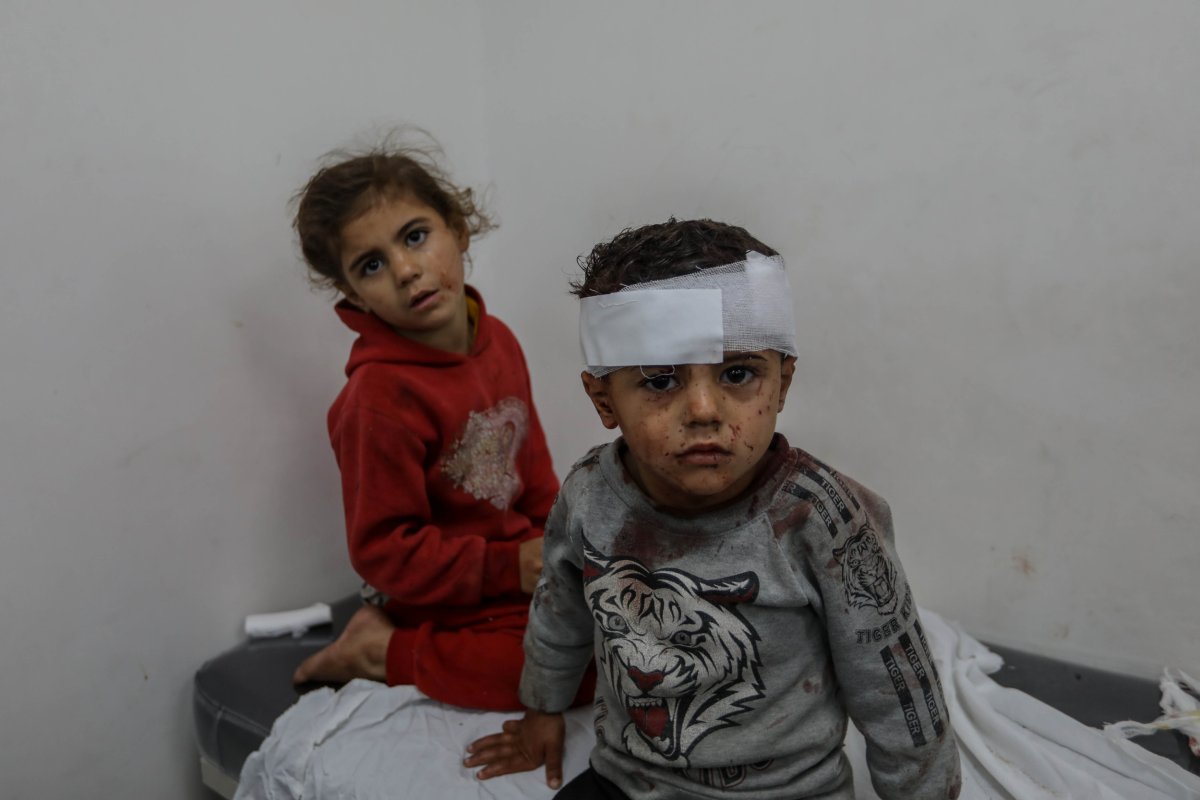
Azerbaijan and Armenia compete despite their wars over the Nagorno-Karabakh region, and Lebanon attempted to enter Eurovision in 2005 only to withdraw because it would have been forced to broadcast Israel's entry, which was a violation of the country's laws.
These examples are proof that Israel should be allowed to compete despite the situation in Gaza, according to Harel.
"It is not a simple place. It is a war zone," he says of his country. "Why not boycott Ukraine for attacking Russia's cities? Or Armenia and Azerbaijan for their war?"
Regardless he says, "none of this is relevant to Eurovision," because "it is a music show" and nothing more.
Swain, however, sees a double-standard from the opposite perspective, because Eurovision has "precedents" of disallowing countries in the contest, such as Russia, but is allowing Israel to compete despite what she calls its "disregard for Palestinian life in comparison with the lives of other people in Europe."
"If we accept that Eurovision does have the right to exclude some countries, why is it that Israel hasn't yet reached that threshold? How many Palestinians have to be killed for that to be an acceptable consequence?" she asks.
Curran also defends the EBU's decision by saying that KAN met "all the competition rules for this year and can participate as it has for the past 50 years," but says it would be difficult to compare the onslaught in Gaza with Russia's invasion of Ukraine.
"Comparisons between wars and conflicts are complex and difficult and, as a non-political media organization, not ours to make. In the case of Russia, the Russian broadcasters themselves were suspended from the EBU due to their persistent breaches of membership obligations and the violation of public service values," he says, adding the Israeli government and KAN were "different" to the Russian example.
"The EBU is aligned with other international organizations, including sports unions and federations and other international bodies, that have similarly maintained their inclusive stance towards Israeli participants in major competitions at this time," Curran says.
Is Too Late For Eurovision 2024 to be Non-Political?
It's hard to imagine that the Israel-Hamas conflict and humanitarian crisis in Gaza will be far from people's minds during this year's contest, and whether there are overt references to it or not, there will be plenty of reminders.
Palestinian singer Bashar Murad is considered a front-runner to win Iceland's competition to represent the country this year and, as a result, bookmakers have placed it in the top five countries likely to take home the trophy.
Meanwhile, Luxembourg chose Israeli-Luxembourger singer Tali Golergant to represent it at Eurovision.
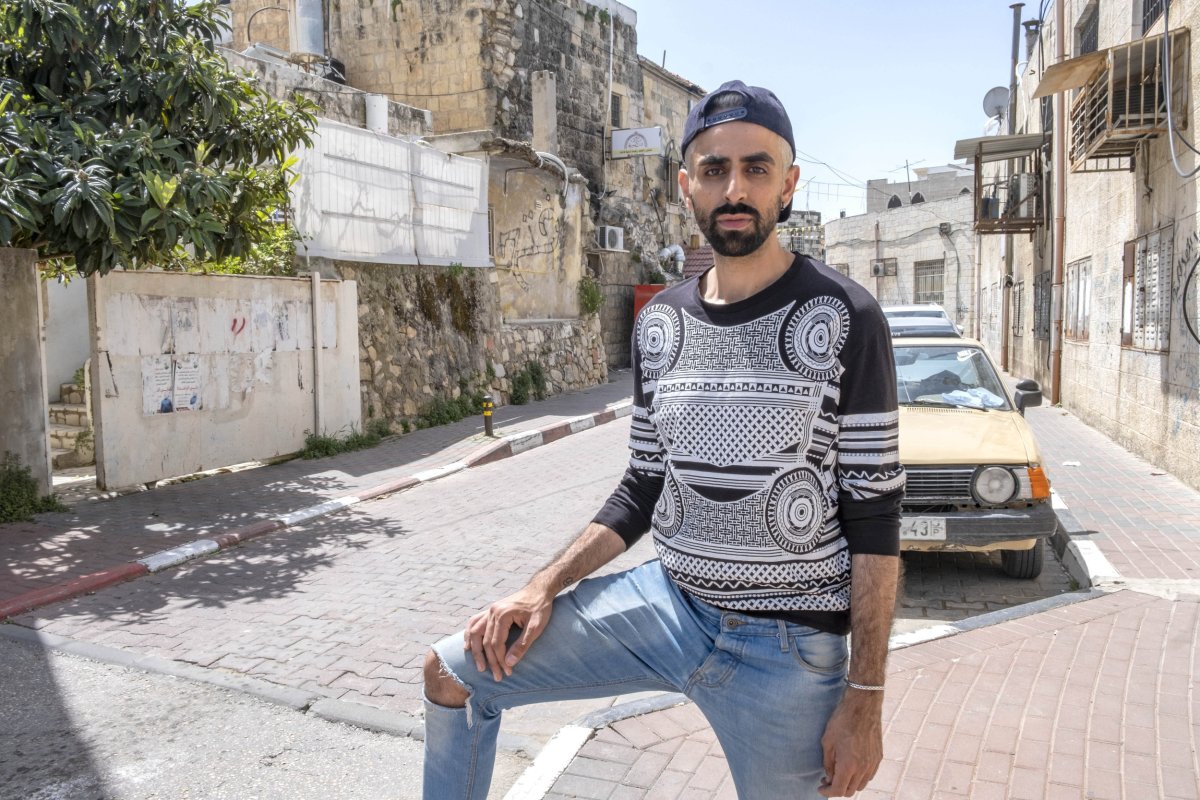
There has also been plenty of discourse around other participating artists and their stance on the issue, including U.K. representative Olly Alexander, who faced calls to be removed after signing an open letter that called for a ceasefire and described Israel as an "apartheid state."
Despite its official slogan being "United By Music," Eurovision 2024 looks like it will be anything but. Nevertheless, Israelis plan to celebrate no matter what.
"Haters will hate but we will bring our happy spirit and celebrate," Harel says.
That's the problem, according to Swain. Allowing Israel to compete not "only ignores what's happening, but it also enables Israel to present a friendly face to the world."
*David declined to use his surname due to safety concerns.
Uncommon Knowledge
Newsweek is committed to challenging conventional wisdom and finding connections in the search for common ground.
Newsweek is committed to challenging conventional wisdom and finding connections in the search for common ground.
fairness meter
To Rate This Article
About the writer
Shannon Power is a Greek-Australian reporter, but now calls London home. They have worked as across three continents in print, ... Read more
To read how Newsweek uses AI as a newsroom tool, Click here.




